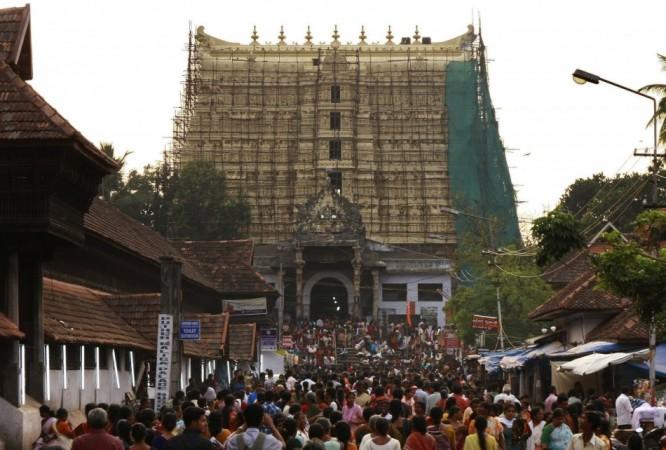
India's Supreme Court on Friday kept the expert panel's recommendation to open vault B of Kerala's Sree Padmanabhaswamy temple in reserve until necessary steps are taken up to protect and conserve the treasure found so far in other vaults.
The apex court bench headed by Justice R.V. Raveendran and Justice A.K. Patnaik gave the ruling, pending specific directions for Wednesday.
Justice Raveendran stressed the need to uphold the traditions and faith of the devotees, while at the same time not letting them come in the way of providing security to temple treasure.
"Somewhere down the line, a compromise has to be hammered between tradition and faith, and the security of the temple treasure," reads the verdict delivered on Friday.
The expert panel submitted its interim report to the country's apex court on Thursday, saying that the value of the treasure in the famous Padmanabha Swamy temple should be opened to ascertain the value of the treasure.
In July, the court-appointed officials have unearthed treasure worth more than $23 billion from secret underground chambers in the centuries-old Sree Padmanabhaswamy temple located in Thiruvananthapuram, the capital city of the South Indian state of Kerala. The last remaining vault was not yet opened pending the court's verdict. Now, the decision to open the last vault B will be taken at a later day, giving room for a compromise on the issue.
The expert panel headed by Dr C.V. Ananda Bose from the National Museum includes representatives of the Reserve Bank of India and the Archaeological Survey of India (ASI).
The court has asked the committee to supervise the inventory of the treasure and prepare documentary evidence in the form of both videos and photos.
Apart from diamonds, gold jewelry and other valuables worth an estimated $23 billion from the five of the six vaults so far. There were apprehensions that the family of the persons who open the vault may face retribution and the recent death of the main petitioner Sundar Rajan was cited as the case in question.
All the five vaults were opened after almost 136 years in July, making the temple the richest in India. Previously, Tirumala Venkateswara Temple in Tirupati, Andhra Pradesh; Golden Temple in Amritsar, Punjab; and the Shirdi Sai Baba shrine in Maharashtra were believed to be the richest temples in the country.
The temple was constructed in the 18th century in the Dravidian style architecture but references to its earlier structures at the site date back to as early as the early medieval writings of the Alvars (Between 6th and 9th century).
The Hindu temple dedicated to Lord Vishnu, in the eternal sleep posture, was considered one of the 108 Divya Desams (Holy Abodes) in India.
The vaults were searched after a lawyer, Sundar Rajan, petitioned the country's top court, Supreme Court, to order the government to take over the temple as it did not have adequate security and the current controllers were incapable of protecting the wealth of the temple.
Leaders of the Hindu community want the wealth to be invested in the temple, while many intellectuals, including former Supreme Court judge Justice V. R. Krishna Iyer have suggested it should be used for the public good.
In India normally devotees donate gold and other precious objects as gifts to spiritual or religious institutions that run hospitals, schools and colleges and to several temples as part of their pilgrimage to get the blessings of the God. This has led to billions of dollars worth of wealth existing in several temples of India.
The Tirumala temple is reported to have 3,000 kilograms (6,614 pounds) of gold, a third of which it deposited with the State Bank of India last year, while spiritual guru Sathya Sai Baba, who died in April, left behind an estimated $9 billion estate.
($1 = 45 rupees)










